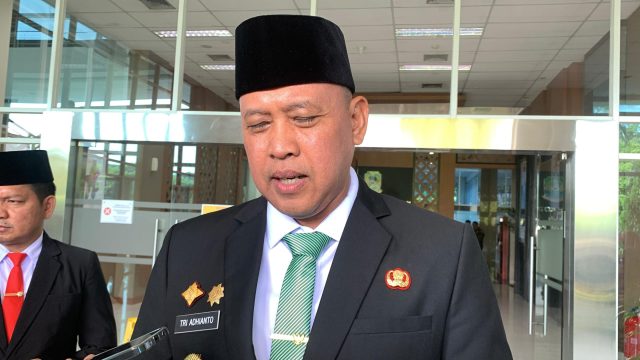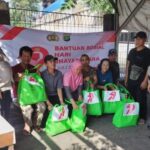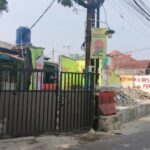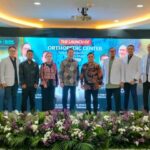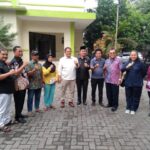BEKASI CITY – The Mayor of Bekasi has conducted a major reshuffle of echelon II officials within the Bekasi City Government. A total of 19 department heads were rotated by Tri Adhianto after 6 months of leading Bekasi City.
The oath-taking ceremony was held in the Nonon Shontanie hall, Bekasi City Hall.
dr. Kusnanto, who previously served as Director of RSUD CAM, was moved to Head of the Population Control and Family Planning Agency. Nadih Arifin, Head of Youth and Sports, was shifted to Head of Communications, Informatics, Statistics and Encryption. Nesan Sujana, from National Unity and Political Agency, was transferred to Head of Civil Service Police Unit of Bekasi City.
Meanwhile, Satia Sriwijayanti Anggraini, Head of Women’s Empowerment and Child Protection, was appointed Head of Health Department. Arif Maulana, Head of Tourism and Culture, became Head of Spatial Planning. Muhammad Solikhin, Head of Trade and Industry, was assigned as Head of the Regional Revenue Agency.
Bekasi Mayor Tri Adhianto stated that based on process and evaluation status, a mutation for echelon II officials within the Bekasi City Government was carried out.
“I also express my thanks because they have worked quite well. I want the new officials to be able to find new potential amid budget efficiency,” said the Mayor.
The politician also stated that the assessment for this mutation and rotation is performance-based to realize the vision of Bekasi City.
“I am more focused on performance, regarding how to accelerate the process of realizing the vision of a safe and prosperous Bekasi City,” said Tri.
When asked about positions that are still vacant, Tri stated he will conduct open bidding to fill those vacancies.
“For those still vacant, we will use the open bidding method to fill the vacant positions,” he said.
List of echelon II officials who were rotated and transferred:
1. Arif Maulana – Head of Spatial Planning Department of Bekasi City
2. Dzikron – Head of Tourism and Culture Department of Bekasi City
3. Asep Gunawan – Government Staff Advisor of Bekasi City
4. Muhammad Solikhin – Head of Regional Revenue Agency of Bekasi City
5. Ika indah Yarti – Head of Trade and Industry Department of Bekasi City.
6. dr. Kusnanto Saidi – Head of Population Control and Family Planning Agency
7. Mohammad Bambang Santoso – Economic Staff Advisor
8. Aceng Solahudin – Administrative Staff Advisor.
9. Alexander Zulkarnain – Head of Education Department of Bekasi City.
10. Robert Tua P Siagin- Head of Social Department of Bekasi City.
11. Nadih Arifin – Head of Communications, Informatics, Statistics and Encryption Department of Bekasi City.
12. Herbert Suyanto W Panjaitan – Head of Small and Medium Enterprises Department of Bekasi City.
13. Karto – Head of Food Security, Agriculture and Fisheries Department of Bekasi City.
14. Nesan Sujana – Head of Civil Service Police Unit of Bekasi City.
15. Hudi Wijayanto – Head of National Unity and Political Agency of Bekasi City.
16. Dinar Faisal Badar – Regional Assistant (Asda) 3 of Bekasi City.
17. Dicky Iriawan – Regional Development Planning, Research and Development Agency of Bekasi City.
18. Yudianto – Head of Regional Financial and Asset Management Agency of Bekasi City.
19. Satia Sriwijayanti – Head of Health Department of Bekasi City.

